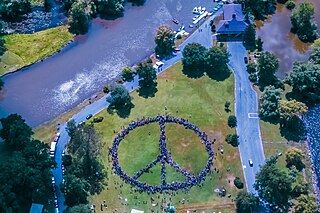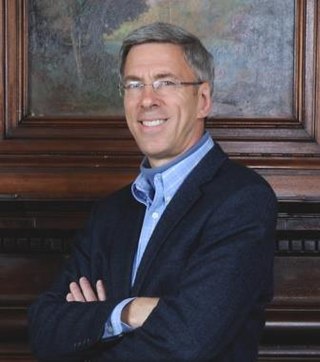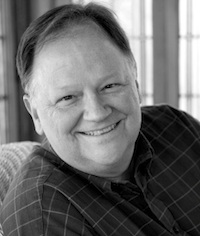
Peacekeeping comprises activities intended to create conditions that favour lasting peace. Research generally finds that peacekeeping reduces civilian andllll battlefield deaths, as well as reduces the risk of renewed warfare.

Macalester College is a private liberal arts college in Saint Paul, Minnesota. Founded in 1874, Macalester is exclusively an undergraduate four-year institution and enrolled 2,174 students in the fall of 2018 from all 50 U.S. states, four U.S territories, the District of Columbia, and 97 countries. The college has Scottish roots and emphasizes internationalism and multiculturalism.

The United Nations Organization Stabilization Mission in the Democratic Republic of the Congo or MONUSCO, an acronym based on its French name Mission de l'Organisation des Nations Unies pour la stabilisation en République démocratique du Congo, is a United Nations peacekeeping force in the Democratic Republic of the Congo (DRC) which was established by the United Nations Security Council in resolutions 1279 (1999) and 1291 (2000) to monitor the peace process of the Second Congo War, though much of its focus subsequently turned to the Ituri conflict, the Kivu conflict and the Dongo conflict. The mission was known as the United Nations Mission in the Democratic Republic of Congo or MONUC, an acronym of its French name Mission de l'Organisation des Nations Unies en République démocratique du Congo, until 2010.

Nonviolent Peaceforce (NP) is an international nongovernmental organization that employs Unarmed Civilian Protection. Their mission is to protect civilians in violent conflicts through unarmed strategies, build peace side-by-side with local communities, and advocate for the wider adoption of these approaches to safeguard human lives and dignity. NP holds Special Consultative Status with the Economic and Social Council of the United Nations, and has been endorsed by nine Nobel Peace Prize laureates, including the Dalai Lama and former South African Archbishop Desmond Tutu. In 2016, Nonviolent Peaceforce was nominated for a Nobel Peace Prize.

The United Nations Mission in Liberia (UNMIL) was a peacekeeping operation established in September 2003 to monitor a ceasefire agreement in Liberia following the resignation of President Charles Taylor and the conclusion of the Second Liberian Civil War (1999–2003). At its peak it consisted of up to 15,000 U.N. military personnel and 1,115 police officers, along with civilian political advisors and aid workers.

Nonviolence International (NI) acts as a network of resource centers that promote the use of nonviolence and nonviolent resistance. They have maintained relationships with activists in a number of countries, with their most recent projects taking place in Palestine, Sudan and Ukraine. They partnered with International Center for Nonviolent Conflict to update Gene Sharp's seminal work on 198 methods of nonviolent action through a book publication. NI has also produced a comprehensive database of nonviolence tactics, which stands as the largest collection of nonviolent tactics in the world. They partner with Rutgers University to provide the largest collection of nonviolence training materials in the world.
Third Party Non-violent Intervention refers to the practice of intervening from the outside in violent conflicts with the aim of reducing violence and allowing "space" for conflict resolution. Two common forms of intervention are as an intermediary in a negotiating capacity or, physically, by interposing one's body between two factions.

Peacebuilding is an activity that aims to resolve injustice in nonviolent ways and to transform the cultural and structural conditions that generate deadly or destructive conflict. It revolves around developing constructive personal, group, and political relationships across ethnic, religious, class, national, and racial boundaries. The process includes violence prevention; conflict management, resolution, or transformation; and post-conflict reconciliation or trauma healing before, during, and after any given case of violence.
The United Nations Peacekeeping efforts began in 1948. Its first activity was in the Middle East to observe and maintain the ceasefire during the 1948 Arab–Israeli War. Since then, United Nations peacekeepers have taken part in a total of 72 missions around the globe, 14 of which continue today. The peacekeeping force as a whole received the Nobel Peace Prize in 1988.

Walter Dorn is a scientist, educator, author and researcher. Dorn teaches military officers and civilian students at the Canadian Forces College (CFC) in Toronto and also at the Royal Military College of Canada (RMC) in Kingston. He lectures and leads seminars on the ethics of armed force, peace operations, the United Nations, arms control, Canadian and US foreign/defence policy, Canadian government and society, and science/technology applications. He serves as chair of the Department of Security and International Affairs at CFC and previously was chair of the Master of Defence Studies programme at RMC.
Peacekeeping by the United Nations is a role held by the Department of Peace Operations as an "instrument developed by the organization as a way to help countries torn by conflict to create the conditions for lasting peace". It is distinguished from peacebuilding, peacemaking, and peace enforcement although the United Nations does acknowledge that all activities are "mutually reinforcing" and that overlap between them is frequent in practice.

Bernard Lafayette, Jr. is an American civil rights activist and organizer, who was a leader in the Civil Rights Movement. He played a leading role in early organizing of the Selma Voting Rights Movement; was a member of the Nashville Student Movement; and worked closely throughout the 1960s movements with groups such as the Student Nonviolent Coordinating Committee (SNCC), the Southern Christian Leadership Conference (SCLC), and the American Friends Service Committee.
Mohammed Abu-Nimer is an American expert on conflict resolution and dialogue for peace. He is a full professor at the American University School of International Service in International Peace and Conflict Resolution in Washington, DC, the largest school of international relations in the United States.
The Mindanao Peoples Caucus (MPC) is a grassroots network of Indigenous Peoples, Bangsamoro and Christian communities and leaders who have common vision for peace in Mindanao. MPC is known to have stood up for the struggle to finally resolve the age-old armed conflict in Mindanao through a negotiated political settlement that contains the essentials acceptable to both negotiating parties and that addresses the historical oppression and forced marginalization of the native inhabitants and indigenous peoples of this island.
Meta Peace Team (MPT), formerly Michigan Peace Team, is a nonprofit, grassroots organization founded in 1993 that seeks to pursue peace through active nonviolence and create an alternative to militarism through empowered peacemaking. MPT provides creative nonviolence training workshops to ordinary citizens with a framework of third party nonviolent intervention (TPNI), and it deploys peace teams to conflict areas both domestically and internationally. Its peace teams have worked in places such as Iraq, Haiti, Bosnia, Egypt, Panama, Mexico, Gaza Strip, and the West Bank; they have also been placed within the United States to create peaceful presences at national and state political conventions, Ku Klux Klan rallies, and gay pride parades, among many other events. MPT also works in collaboration with other peace and justice groups around the globe, including Nonviolent Peaceforce, Christian Peacemaker Teams, Veterans for Peace, the International Solidarity Movement, Peace Brigades International, the Shanti Sena Network, and the Metta Center for Nonviolence. Its current offices are located in Lansing and Detroit, Michigan. MPT is a founding member of the Shanti Sena Network.
The International Pfeffer Peace Award or Pfeffer Peace Award is one of the three peace awards presented by the United States Fellowship of Reconciliation (FOR), along with the Martin Luther King Jr. Award and the Nyack Area Peace Award. Since 1989, it has been awarded annually to "individuals or organizations whose commitment to peace, justice, and reconciliation is recognized as extraordinary."
United States Fellowship of Reconciliation was founded in 1915 by sixty-eight pacifists, including A. J. Muste, Jane Addams and Bishop Paul Jones, and claims to be the "largest, oldest interfaith peace and justice organization in the United States." Norman Thomas, at first skeptical of its program, joined in 1916 and would become the group's president. Its programs and projects involve domestic as well as international issues, and generally emphasize nonviolent alternatives to conflict and the rights of conscience. Unlike the U.K. movements, it is an interfaith body, though its historic roots are in Christianity. Both the FOR in the United States and similarly-named organizations in other countries are affiliated with the International Fellowship of Reconciliation.
Lise Morjé Howard is a political scientist from the United States (U.S.), an expert on United Nations peacekeeping, conflict resolution, civil wars, and American foreign policy. She is currently a Professor of Government and Foreign Service at Georgetown University and President of the Academic Council on the United Nations System (ACUNS).








